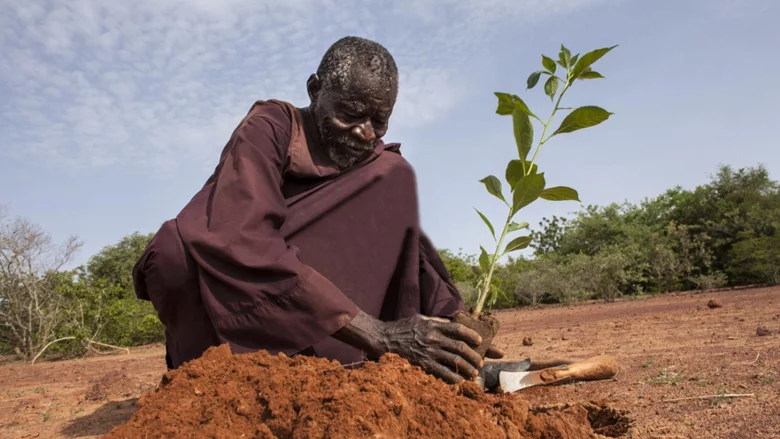African Agriculture, Inc. (AAGR) is making significant strides by focusing on the transformation of the beef and dairy industries through innovative agricultural practices.
In a bid to combat food insecurity in West Africa’s Sahel region, African Agriculture, Inc. (AAGR) is making significant strides by focusing on the transformation of the beef and dairy industries through innovative agricultural practices. The region, grappling with climate change, armed conflicts, and economic shocks, has found an ally in AAGR’s mission to provide food security.
The company, led by CEO Alan Kessler, is leveraging the ancient crop, alfalfa, known for its high-yield and rich protein content, to address the pressing challenges faced by the Sahel. With temperatures rising 1.5 times faster than the global average and extreme weather conditions becoming more frequent, AAGR’s initiative is a beacon of hope for the 200 million herds of cattle in the region.
African Agriculture owns extensive farmland in Senegal, totaling 25,000 hectares, and has already begun utilizing 750 acres for alfalfa production. The company’s current production capacity is around 1,000 tons per month, with ambitious plans to reach 2,500 tons by mid-2024 and substantially grow in 2025.
The Nasdaq listing has proven to be instrumental for AAGR, providing exposure to institutional investors and unlocking $7 million in new capital. While this falls short of the $40 million target, AAGR remains optimistic about its growth trajectory. The listing opens doors for the company to tap into the global alfalfa market projected to reach $35 billion in 2028.
AAGR plans to expand its operations to Mauritania and Niger, strategically positioning itself to capture a significant share of the market. The company recognizes the challenges of raising capital amid rising interest rates and inflation and sees the Nasdaq listing as a catalyst for attracting more investments.
Water management is a crucial component of AAGR’s long-term goals, especially considering the water-intensive nature of alfalfa cultivation. The company, committed to sustainability, has conducted extensive feasibility studies, ensuring responsible water use from the Senegal River, a lifeline for local communities. However, a contested land issue with local herders and pastoralist communities adds a layer of complexity to AAGR’s operations.
AAGR’s entry into Senegal was strategic, considering the country’s dry conditions, ideal for alfalfa production. The company aims to make a positive impact on local communities by creating jobs, supporting social programs, and contributing to economic empowerment.
Technology plays a pivotal role in AAGR’s operations, with data management tools optimizing efficiency and ensuring high yields. Despite initial challenges, AAGR’s commercial production in 2022 has already demonstrated significant benefits for local dairy farmers. While cattle feed costs may be high, the company argues that the investment in alfalfa translates to a substantial increase in milk productivity, bringing economic returns for farmers.
The success of AAGR’s operations in Senegal has not gone unnoticed, attracting competition from other companies entering the commercial alfalfa farming sector. Undeterred, AAGR believes its strong foundation, commitment to sustainability, and collaboration with local communities set it apart, positioning the company as a major player in the evolving agricultural landscape of the Sahel.
As AAGR navigates the challenges and opportunities that lie ahead, its Nasdaq listing marks a pivotal moment in the company’s journey, signaling a commitment to creating value for shareholders while contributing to the broader goals of food security, economic development, and community collaboration in the Sahel region.
